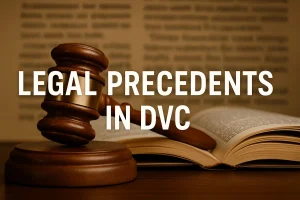When your car is damaged in an accident and repaired, it may look good as new — but it’s rarely worth the same as it was before. That difference in market value is called diminished value (DV), and it can cost you thousands if not addressed properly. The good news? Consumer protection laws in your state may give you the leverage you need to fight back and get the payout you deserve.
In this article, you’ll learn how consumer laws apply to diminished value claims, what tactics insurers use to minimize your compensation, and how to use your rights to strengthen your case. If your insurer is lowballing or ignoring your DV claim, here’s how the law can work in your favor.
How Consumer Protection Laws Support Your DV Rights
Most states have laws designed to prevent unfair treatment by insurance companies. These laws prohibit deceptive practices, unnecessary delays, and lowball offers. They also require insurers to act in good faith when processing and settling claims.
For example:
- Unfair Claims Practices Acts (UCPA) exist in most states and regulate how insurers must handle claims.
- Some states, like Georgia, explicitly allow diminished value recovery under these protections.
- Regulators may penalize insurers who consistently deny valid claims or undervalue damages.
Common Ways Insurers Try to Undermine DV Claim

Insurers often:
- Pretend diminished value doesn’t apply or isn’t covered.
- Offer far less than the actual market loss.
- Delay processing until you give up or accept a low amount.
This is where consumer protection laws can help. They’re your tool to demand a fair process, and in some cases, they allow for legal action if your rights are violated.
How to Use Consumer Laws to Strengthen Your Claim
- Mention the Law in Your Demand
Use firm but professional language referencing your state’s consumer rights or unfair claims practices statutes. This signals that you know your rights and won’t be pushed around. - File a Complaint with the Department of Insurance
If you suspect the insurer is violating the law, file a formal complaint with your state’s Department of Insurance. This can trigger an investigation and often pushes insurers to settle fairly. - Consider Legal Help
In some cases, a consumer law attorney can send a letter or pursue legal action. Many work on contingency, especially if your claim involves bad faith.
Documentation That Strengthens Your Legal Position
To make the most of your rights, keep your paperwork organized:
- Independent appraisal report showing the market loss.
- Copies of all communication with the insurer.
- Original repair invoices and vehicle history before the accident.
- Any lowball offers or unreasonable delays.
If the insurer keeps ignoring or dismissing your claim, this documentation becomes powerful evidence when filing complaints or pursuing legal action.
Real Results: When the Law Works

Many claimants see success after referencing consumer protection laws. For instance, policyholders in Georgia and North Carolina have received higher DV settlements after citing unfair claims handling. These examples show that knowing your rights — and standing firm — often pays off.
Final Takeaway: Don’t Let the Insurer Dictate the Terms
Insurance companies count on you not knowing your rights. But consumer protection laws are on your side. Use them to demand fairness, push back against bad offers, and make sure your diminished value claim is treated seriously.
If you’ve got the evidence and you weren’t at fault, there’s no reason to settle for less. The law exists to protect consumers like you — use it.



